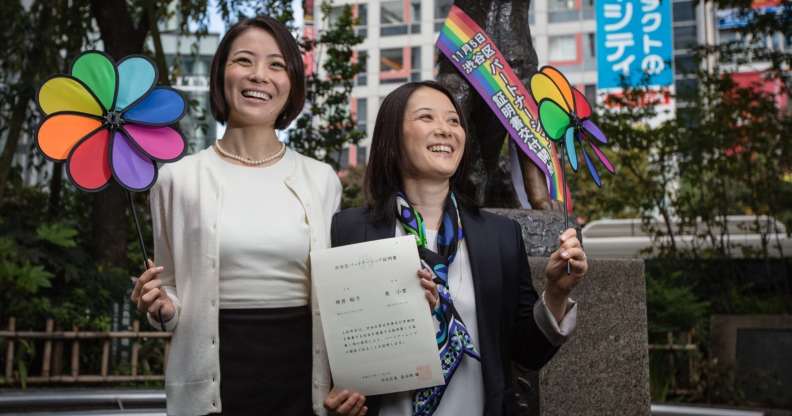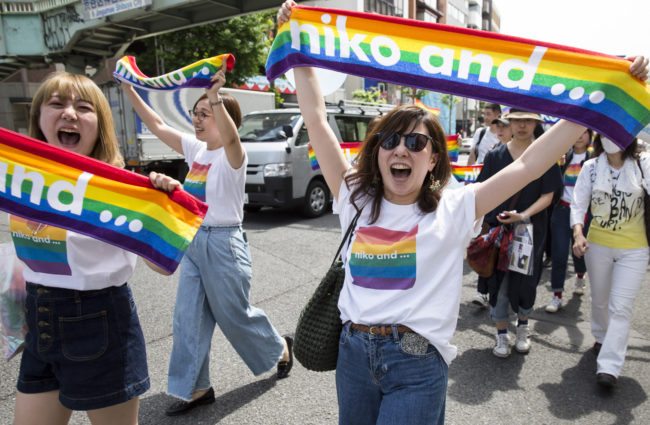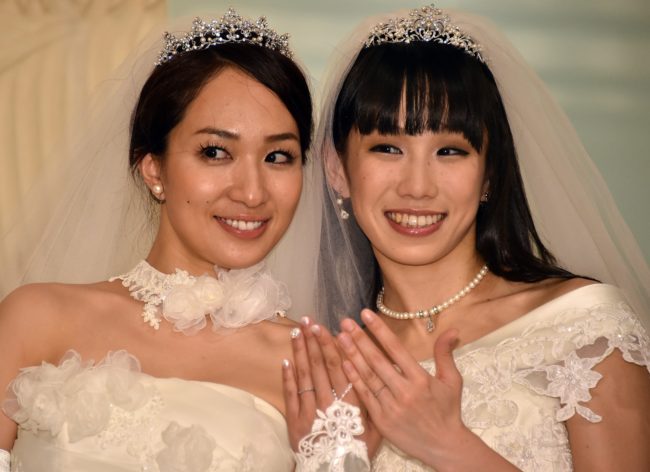Japanese city Sapporo issues cards proving same-sex partnerships in case of emergencies

Japan is relatively accepting of LGBT people compared to other Asian countries (Christopher Jue/Getty)
The Japanese city of Sapporo has started issuing cards which prove same-sex couples are in relationships, in case of emergencies such the hospitalisation of a partner.
The cards contain the names of both partners, the date of issue and a note asking people to recognise its purpose, although it is not legally binding.
Sapporo, on the northern island of Hokkaido, launched its partnership oath scheme in 2017 to officially recognise same-sex couples in the city, but has only just started distributing the cards.
Although same-sex partnerships do not have the same legal rights as marriage, the cards are designed help couples avoid problems in certain situations, for example ─ when requesting hospital visits, or when moving into an apartment together.
Cardholders are required to be at least 20 years old and living in Sapporo, or planning to live in Sapporo.

Attendees take part in the Tokyo Rainbow Pride Parade in May 2018 in Tokyo, Japan (Tomohiro Ohsumi/Getty Images)
Couples also have to submit a written oath of their partnership to the city’s Gender Equality Division.
Ken Suzuki, of the same-sex partnership support group Domestic Partnership Sapporo, told Out-Japan: “The door of hope has opened right before us. We will keep moving forward. I hope more LGBT people and their allies will work together for the bettering of LGBT rights in Japan.”
Sapporo has already certified the partnership oaths of 42 couples in the area and although the scheme is not in place nationwide, other regions have launched similar schemes.
Shibuya and Setagaya, two areas of the capital Tokyo, also recognise same-sex partnerships in this way.
The city of Fukuoka, on Kyushu island, also began to issue cards to prove same-sex partnerships in April.

Japanese actress Akane Sugimori and her partner Ayaka Ichinose held a symbolic wedding in protest of same-sex marriage in 2015 (Getty Images)
The Mayor of Fukuoka, Soichiro Takashima, gave out the first official partnership certificate to a couple at City Hall.
Anri Ishizaki, a 33-year-old transgender man and outspoken LGBT activist, was legally recognised as being in a union with 27-year-old Miho Yamashita.
Acceptance of same-sex unions is growing in Japan, although gay marriage is still illegal.
In 2009, Japan started allowing Japanese nationals to marry in countries where same-sex marriage is legal.
According to a 2016 survey by the research institute LGBT Marketing Lab, nearly 90% of Japanese parents aged between 30 and 59 would accept their children coming out as LGBT, although some would do so reluctantly.
Data published by the Pew Research Center in 2013 found just 54% of adults in the country agree homosexuality should be accepted by society.

